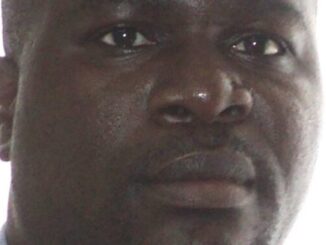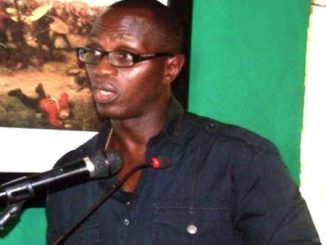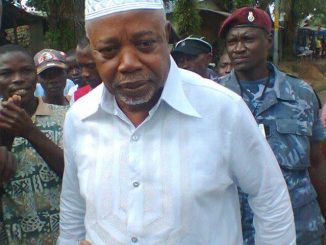Sierra Leone’s national elections, on 17 November, will be an important test of whether the nation will sustain its course away from being among the world’s most traumatized post-conflict countries. The stakes are unusually high; this will be the first time Sierra Leone has held simultaneous elections for president, parliament, local council chairpersons, and council representatives. Recent history is favorable: the national elections in 2007 marked the first time power passed peacefully from the ruling party to the opposition. But occasional electoral violence from the parties’ ethnic alignments and winner-take-all traditions continue, as they have throughout the nearly five decades since I served in the Kambia District as a Peace Corps volunteer.
The incumbent, President Ernest Bai Koroma, leader of the All People’s Congress (APC), is the nation’s first Temne president and the first from a career in business. The son of Wesleyan school teachers in Makeni, Koroma was virtually unknown outside the political elite until he became the APC leader in 2002 and ran for president against incumbent President Ahmed Tejan Kabbah, who won in a landslide. But in 2007, when Kabbah reached his term limit, Koroma defeated the incumbent Vice-President in a run-off election.
The international community has generally given President Koroma high marks. The World Bank notes satisfactory progress on the poverty reduction strategy and most of the millennium development goals. Sierra Leone’s “Doing Business” scores have improved significantly, and there have been some improvements in the fight against corruption. But earlier this year, Koroma demanded, and got, the recall of the UN mission chief in order to improve his re-election chances, according to The Economist.
The opposition Sierra Leone People’s Party (SLPP) candidate, retired Brigadier General Julius Maada Bio, is a Mende, the son of the paramount chief of Sogbini, in Bonthe District. Maada Bio first came to public notice in April 1992, when he was one of the six young army officers who overthrew the APC government of Joseph Saidu Momoh and established the National Provisional Ruling Council (NPRC) military junta. Four years later, Maada Bio engineered the ouster of the NPRC chairman and became the head of state, for two and a half months, before handing power over to a civilian government led by Ahmed Tejan Kabbah. Maada Bio then left for the United States, where he attained a BA and MA in international development from American University.
The regional and ethnic bases of the APC and SLPP remain little changed from the years before independence, in 1961: the APC draws support from the northern tribes and Krios, and the SLPP from the southern and eastern tribes. Confrontations are increasing as the election nears. According to an APC press release, on 13 October President Koroma cancelled a scheduled debate on the grounds that “Julius Maada Bio is not qualified to share a political platform on issues because he is lawless, disorderly, and does not respect authority.” He warned that “the future of Sierra Leone should not be entrusted into the hands of jokers.”
With eight minor parties also fielding presidential candidates, it seems likely that neither Koroma nor Maada Bio will gain a majority of the first-round vote, in which case a run-off will be necessary. Stay tuned to see how this election turns o






